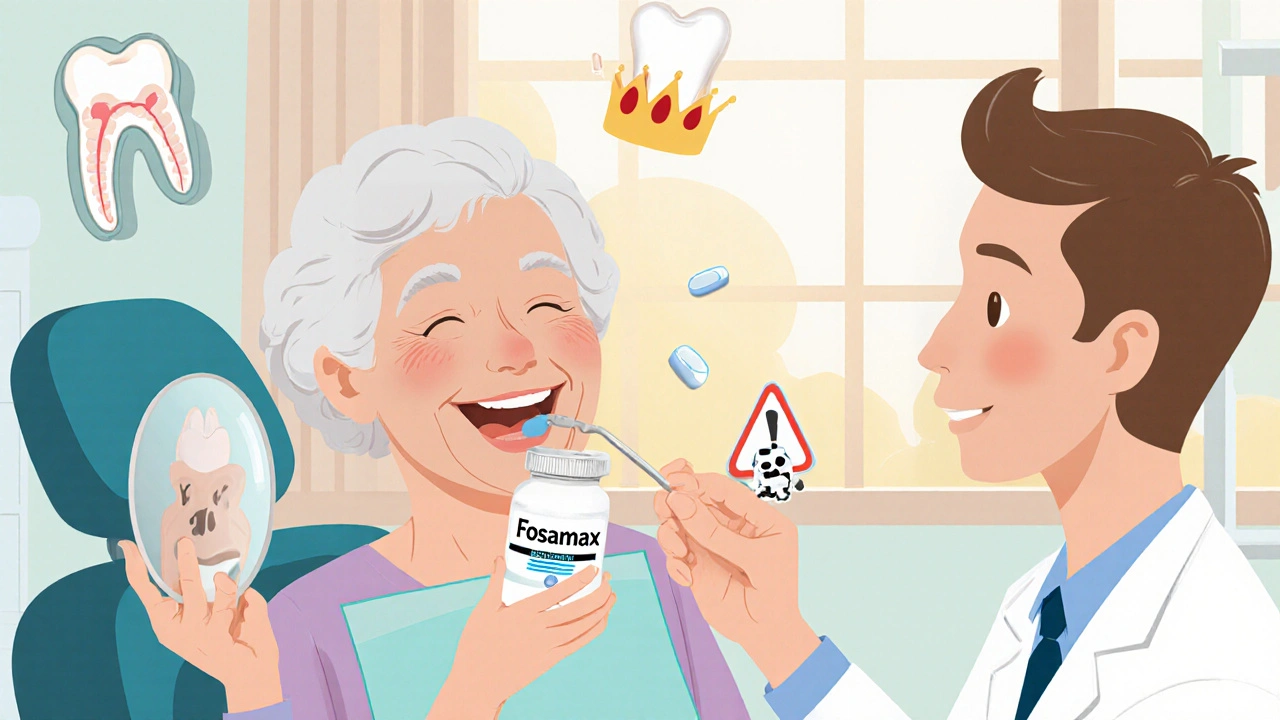Jaw Necrosis: Causes, Risks, and What You Need to Know
When jaw necrosis, a condition where bone tissue in the jaw dies due to reduced blood flow. Also known as osteonecrosis of the jaw, it doesn’t happen randomly—it’s often tied to specific drugs, dental work, or underlying health issues. This isn’t just a dental problem. It’s a systemic side effect that can sneak up after months or even years of taking common medications.
Most cases link back to bisphosphonates, a class of drugs used to treat osteoporosis and bone metastases in cancer patients. Drugs like zoledronic acid and alendronate stop bone breakdown, which sounds good—until the jawbone loses its ability to heal after trauma, like a tooth extraction. Dental health, especially routine cleanings and early detection of gum disease, becomes critical for anyone on these meds. Skipping checkups or ignoring a loose tooth can turn into a slow-burning crisis.
It’s not just bisphosphonates. Newer drugs like denosumab, used for bone loss in breast and prostate cancer, carry similar risks. Even people without cancer but on high-dose osteoporosis treatment can develop jaw necrosis. The real danger? Symptoms start quietly—a sore spot, loose tooth, or numbness—and worsen over time. By the time pain hits, the bone may already be dying. That’s why prevention beats treatment every time.
If you’re on long-term bone meds, tell your dentist. Don’t wait for symptoms. A simple exam before any extraction or implant can change the outcome. Some doctors pause these drugs temporarily before major dental work. Others recommend a thorough cleaning and treating gum disease first. It’s not about avoiding treatment—it’s about planning it right.
This isn’t something you read about in a textbook and forget. People live with it for years. Some lose teeth. Others need surgery. A few end up with chronic infections that won’t heal. But the good news? Most cases are preventable with awareness and smart choices. You don’t need to stop your medication. You just need to know the signs and act early.
Below, you’ll find real-world guides on how medications like bisphosphonates interact with other treatments, what dental risks to watch for, and how to manage side effects without giving up your health plan. These aren’t theory pieces—they’re practical checks from people who’ve been there, and doctors who’ve seen the results.

Osteoporosis Medications: Bisphosphonates and Jaw Necrosis Risks
Bisphosphonates effectively reduce osteoporosis fractures but carry a rare risk of jaw necrosis. Learn the real numbers, who’s at risk, and how to stay safe without stopping your medication.





